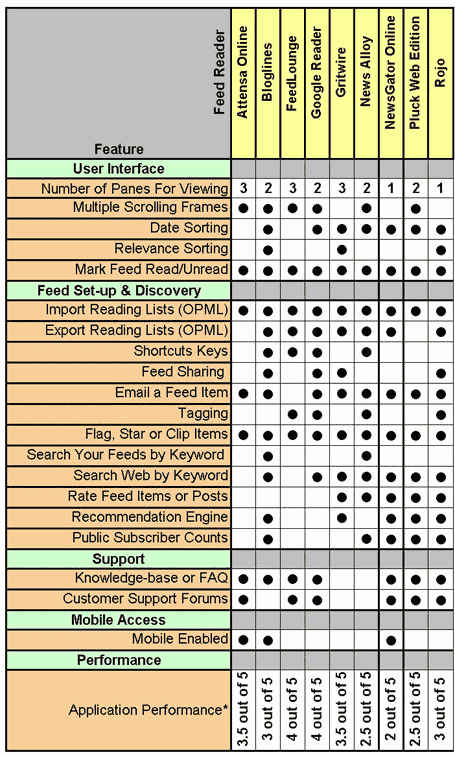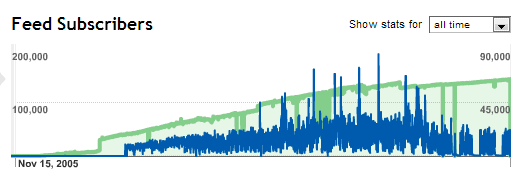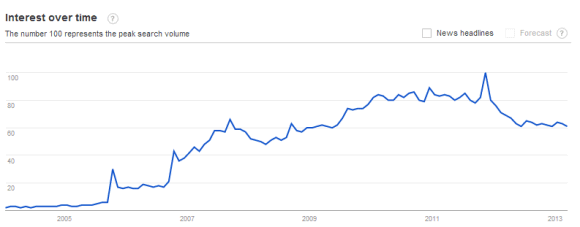The author of Google Reader is surprised that the service has lived for so long.
 American programmer Chris Wetherell is the author of the very first Google Reader prototype in 2005 and the lead programmer on the Google Reader development team.
American programmer Chris Wetherell is the author of the very first Google Reader prototype in 2005 and the lead programmer on the Google Reader development team.Oddly enough, the news of the closure of the project did not upset him at all . With relief, Chris took the news that his child had “exhausted himself” and the suffering was finally over. The last years of Google Reader’s existence have been slow dying. The author himself has been waiting for this for several years.
Chris Wetherell says that Google Reader was doomed to such a fate. Google initially misinterpreted this project. Wheterell himself was convinced of the inevitable death of Google Reader, when the +1 buttons were introduced there.
The author of Google Reader has long been dismissed from Google. Now Chris is working in a new startup Avocado and is developing a mobile application for intimate communications of couples in love. He says that business is growing at a crazy pace, he just shines with happiness.
')
Chris participated in the development of Google Reader from the first version in 2005 to 2009, after which he went on Twitter, then took part in the founding of the startup Thing Labs and worked at Brizzly before the idea of Avocado came to him.
He expresses surprise that Google Reader has been able to last so long. Back in 2005, before the release of the first beta version, the company's management was not sure of the need to launch such a service. At some point, it was decided to even completely close the project even before launch, if it does not have time to start in due time. The continued existence of Google Reader is the result of perseverance by developers and a favorable set of circumstances.
The project opened in 2005, during the heyday of the popularity of RSS technology, the blogosphere boom and with a huge number of different RSS readers , among which Bloglines was the most popular. “The reader market has never left the experimental stage and no one has profited from the business model,” says Chris Wetherell. “Monetization opportunities have never been tried.”

Comparison of RSS aggregator functionality, March 2006
In 2006, TechCrunch published a review of the functionality of RSS aggregators, among which Google Reader stands out with almost nothing. It was a very highly competitive market with dozens of similar services. However, over several years, Google has managed to effectively “clear out” the space and become virtually a monopolist among RSS aggregators. Almost all alternative services ceased to exist until 2010. Bloglines last surrendered on Oct. 1, 2010 .
The reason for the closure of Google Reader declared the "futility" of the project in connection with the cessation of growth in the number of users. No one knows the exact number of users of Google Reader, but the aggregator has the most popular CNN feed with over 24 million subscribers. In second place is Engadget with 6.6 million subscribers. The official Google blog had 100 thousand subscribers in 2007 and about 353 thousand now. The authors of the Google Operating System blog have published statistics that partially confirms some decline in RSS popularity in recent years. The green color shows the number of subscribers, blue - traffic through RSS-aggregators.

Next - Google Trends statistics for the query [ google reader ]:

About 87% of the transitions to the Google Operating System website via RSS went through Google Reader. It can be assumed that after July 1, 2013, many blogs will lose part of their audience. Surely, not all users will find the strength to export feeds and find an alternative service.
On the other hand, some developers believe that closing Google Reader will ultimately benefit the RSS ecosystem. For example, Marco Arment says that for the first time in ten years we will see significant innovation and competition among desktop RSS aggregators and online synchronization services.
Source: https://habr.com/ru/post/173019/
All Articles